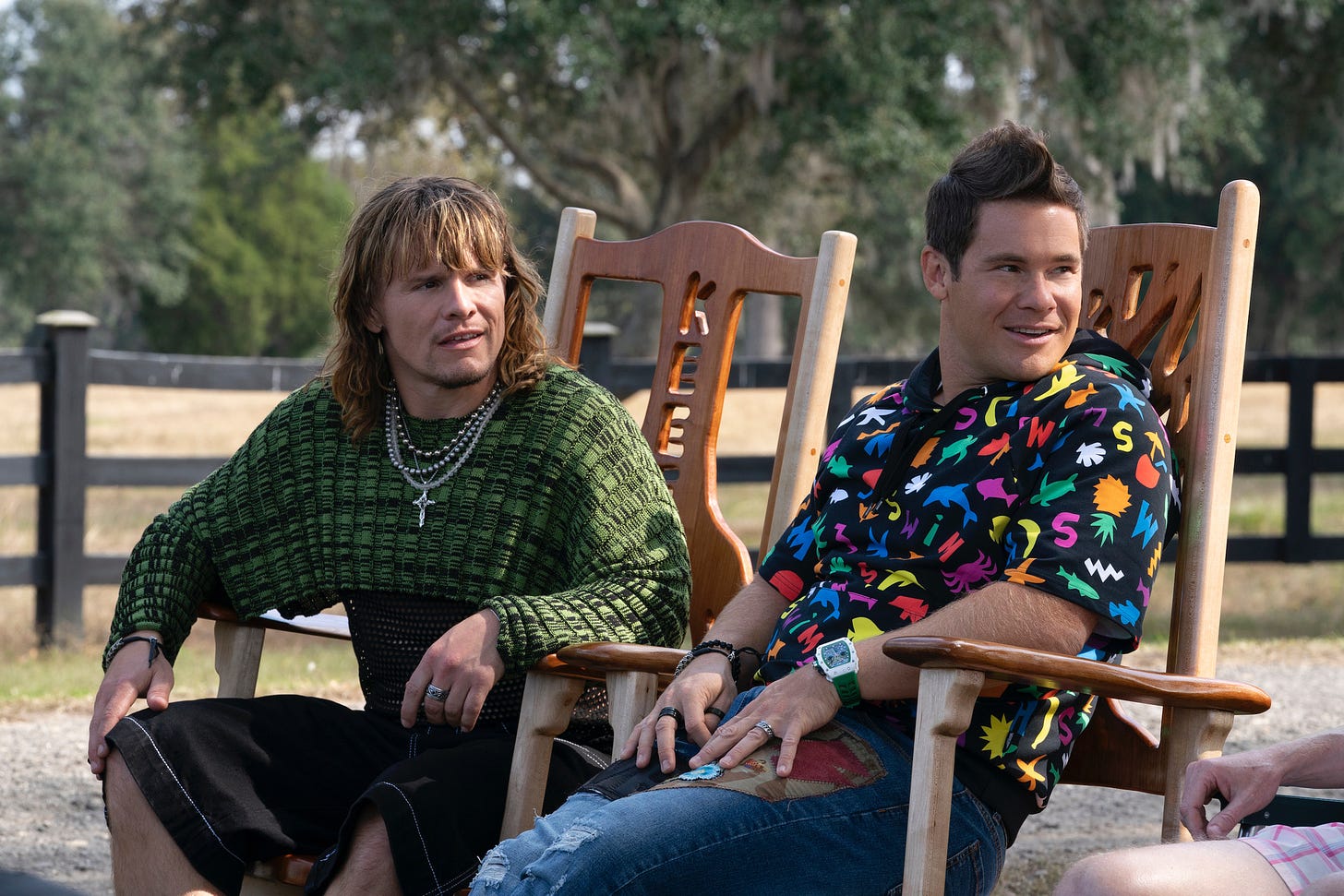Review: The Righteous Gemstones, "I Will Take Them By the Hand and Keep Them" & "Wonders That Cannot Be Fathomed, Miracles That Cannot Be Counted" | Season 3, Episodes 8 & 9
Amazing grace! How sweet the sound that saved some wretches like these!
As I write this review, HBO has just announced The Righteous Gemstones Season 4. But when I watched this two-part finale, I had to wonder if it was the end of The Righteous Gemstones. No cliffhangers, no ominous portents. Everything resolved. And for the record, if this had been goodbye to the Gemstones, I would have loved the way we went out.
Several weeks ago, in the first review of this season, I made a flippant comment about how Gemstones is Succession, but with less chance of redemption. It makes for a good joke, but I never wanted these kids to damn themselves to hell. I look for redemption and grace in every story, and nothing moves me more than when storytellers grant them to their characters. Sure, it’s possible to drop a happy ending out of nowhere, which leaves a sour taste. But the nature of grace is that we don’t have to earn it. It’s not what we do to deserve that redemption; it’s how we respond to the redemption we’re given.
And that’s what satisfies me so deeply about this ending. Shaken by their experience in Peter’s militia compound, the siblings put aside their differences and reunite as church leaders. But Jesse doubles down on his rejection of his father, citing the powerful pretext that Eli refused to pay the ransom. “Our father Elijah does not love us,” he tells Judy and Kelvin at a rare weekday Jason’s Steakhouse meal. “All he cares about is his money.” Now, we viewers know better. But imagine yourselves in Jesse’s situation, pretty sure that he is about to die, with Peter making a convincing case that Eli’s whole career has been about enriching himself.
Conflicts are starting to be resolved as we approach the end, but this one can’t be put aside so easily. We’ve all seen shows where people talk their way out of these situations, where someone just explaining themselves is presumed to be enough to repair the relationship.1 It’s much more believable, elegant, and viscerally affecting when action, not dialogue, changes the way the characters think. When Jesse assumes the role as protector of his family during the plague of locusts, he makes a critical decision about what that means. Family means everybody, even the father you believe sold you out. This moment, when Jesse leaves Amber and Dusty in the Bible Bonkers “hurricane booth” and heads out in search of Eli, is a lovely inversion of the parable of the prodigal son. Both parent and offspring go in search of the other, and save each other in turn. Forgiveness doesn’t need to be explained, or even articulated, in that moment. It’s mutually offered, and mutually accepted.




